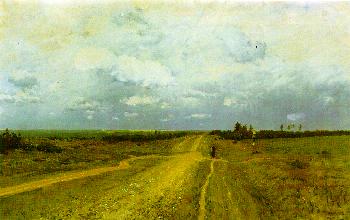
Posted on 12/11/2018 7:18:29 PM PST by Rummyfan
Arrested three months before the defeat of Hitler’s Germany, his first reaction was like that of the millions he would later write about: “Me? What for?” A decorated captain of an artillery battery that had fought its way deep into East Prussia, Aleksandr Solzhenitsyn was at the time a committed Marxist-Leninist. He even fantasized he was being whisked to a meeting with Stalin. In fact, military censors had read his letter exchanges with a boyhood friend, also in the army, in which they criticized Stalin (“the mustachioed one”) for having deviated from the path laid down by Lenin.
It was more than enough to earn Solzhenitsyn a sentence of eight years imprisonment in the labor camps, to be followed by “perpetual exile.” He served all eight years in various camps, plus three years exiled to distant Kazakhstan, where he worked as a teacher of high school mathematics before his sentence was annulled in 1956 in the wake of Khrushchev’s “de-Stalinization.”
Born 100 years ago today, Solzhenitsyn was educated in the sciences, but his lifelong love was literature and writing. In the camps, where writing was prohibited, Solzhenitsyn used matchsticks and rosary beads as mnemonic devices to preserve 12,000 lines of his verse that he would later publish. What brought him to his country’s and the world’s attention, however, was the publication in 1962 of his One Day in the Life of Ivan Denisovich, a fictional but semi-autobiographical account of a day in the life of a Soviet political prisoner (zek) in Stalin’s time.
(Excerpt) Read more at ricochet.com ...

Even one as wise as Solzhenitsyn must be surprised at how much the American people seem poised to embrace communism in 2020 or 2022.
“Harsher and more numerous were his critics on the left, many of whom seemed offended that Solzhenitsyn’s humanism was not of a secular kind but derived instead from the Christian beliefs of his early youth to which he had returned.”
“Criticism intensified particularly after Solzhenitsyn’s Harvard University commencement address in 1978, in which he assailed with his usual vigor aspects of mediocrity and decadence in Western culture.”
Sounds like I would agree with him.
I had read “One Day in the Life of Ivan Denisovich” when I was in middle school. Right about the time when Brezhnev invaded Czechoslovakia.
Bookmark
He’s worth reading. Kind of overlooked now, after the collapse of the Soviet empire. But like other Russian greats his writing is about more than just the events of his lifetime. You can find his Harvard address online for a sample of his work.
From Wikipedia:
Once back in Russia (after 1990) Solzhenitsyn hosted a television talk show program.[66] Its eventual format was Solzhenitsyn delivering a 15-minute monologue twice a month; it was discontinued in 1995.
*************
If only he could have gotten hold of that Merv Griffin set. And maybe booked Yuri Testikov as a guest once or twice.
Read the whole thing. Great story.
Thanks for posting this.
AND how much they're poised to resist it, even those as old as my own old farty a$$! If I have to, I'll get in some kind of shape to be of use, that's for sure.
Live not by lies.
Which we here in America seem prone to do.
If only he could have gotten hold of that Merv Griffin Set.
But Kramer beat him to it.
Solzhenitsyn brought out the true horror of the camps by describing what a “good day” was like.
I’ve read a lot of his works and my favorite is CANCER WARD in English in the Penguin edition. The translator took plenty of license but made it very readable. Solzhenitsyn wrote about the value of life itself.
I also love the Canadian television mini-series, FIRST CIRCLE. It too is autobiographical.
There was a production of ‘Day in the Life ... ‘ on TV in the ‘60s.
Lots of snow and the message was you do whatever it takes to stay alive for one more day. It was in black and white so even more dramatic.
One of the most impactful and influential books I ever read.
Explained the deep, dark evil inherent in the Soviet Union in a way anyone could understand.
“I had read “One Day in the Life of Ivan Denisovich” when I was in middle school.”
It’s a short book, so easy to read. But it gives you the pure hell that is the end game with Communism - I recommend it to anyone.
Sadly, any professor in the West thinking about assigning the book would get fired (tenure or not).
And although the video has pictures from WW2, there is also a 19th c. painting by Isaak Levitan worth contemplating: Vladmirka Road (The Road of Exiles)
Find a full screen image to get a sense of that endless, empty country.

Gulag Archipeligo was a long dry read. Got through half of it. Anne Applebaum’s was the same.
Great book, yes?
I had the same experience. One of my problems was long Russian names. I reverted to reviews and it was obvious this was a greta historical work.
Disclaimer: Opinions posted on Free Republic are those of the individual posters and do not necessarily represent the opinion of Free Republic or its management. All materials posted herein are protected by copyright law and the exemption for fair use of copyrighted works.